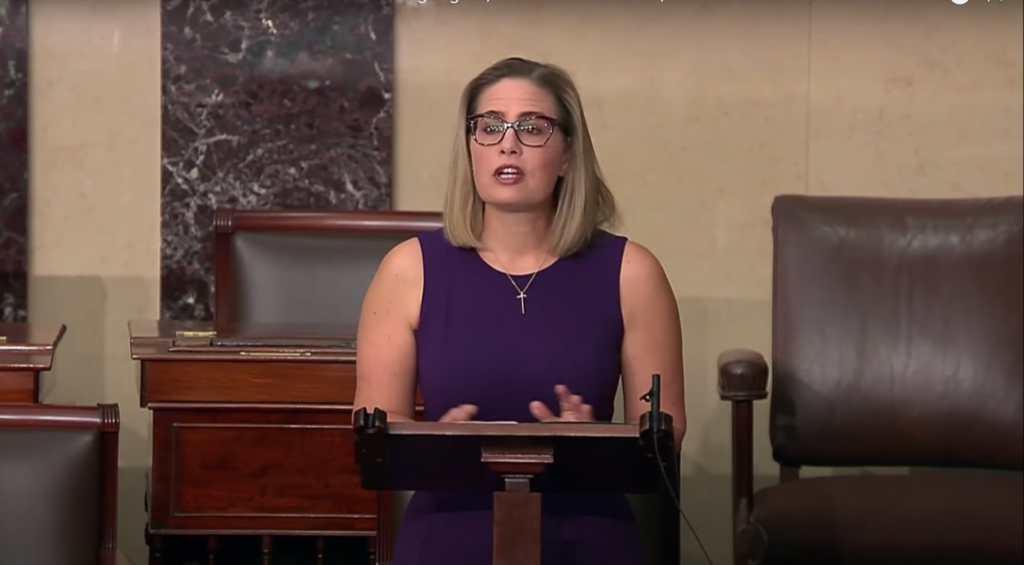Passing legislation to protect voting rights ahead of this year’s midterm elections is unlikely for Democratic Party leaders now that Sen. Kyrsten Sinema has said she’s unwilling to support changing the Senate’s filibuster rule to do so.
As a result, party leaders and grassroots activists now look to prioritize educating voters on how to navigate new voting restrictions enacted last year by Republican-led legislatures in several key battleground states.

The so-called voter integrity bills, as framed by Republicans, were passed in response to former President Donald Trump‘s false claims that there was widespread voter fraud during the 2020 race for the White House.
The shift in voter strategy for Democrats is expected to be a costly one, both politically and financially.
“All these voter protection measures are not cheap,” Florida Alliance executive director Raymond Paultre recently told The New York Times. Paultre’s group leads a statewide network of progressive donors in Florida.
He said funds those donors would normally spend on Democratic campaign efforts will now have to be used to teach potential Democratic voters how to ensure their votes count.
That could mean spending hundreds of millions more on voter registration and turnout initiatives.
“This is going to draw a lot of resources away from candidates, campaigns and organizations,” Paultre said.
Party leaders were already facing an uphill battle to gin up Democratic voter enthusiasm after failing to raise the federal minimum wage to $15 an hour, pass federal police reform measures included in the George Floyd Justice in Policing Act and progressive economic policy measures proposed in their Build Back Better legislation.
There’s also President Joe Biden‘s low approval ratings stemming in part from the U.S. military’s chaotic withdrawal from Afghanistan, rising inflation, crime and the nation’s ongoing battle against COVID-19.
Yet failing to pass a voting rights bill also means voting in key Republican-led states could be more difficult and contentious year.
A county judge in Wisconsin, for example, issued a ruling on Thursday making absentee ballot drop boxes illegal throughout the state beginning on Feb. 15.
That ruling could also bar state residents from turning in other people’s ballots, which would make ballot-collection events, a popular strategy among Democrats and voting rights advocates, a thing of the past, according to the New York Times.
“When you try to suppress the vote, somebody is going to be at the losing end of things,” Wisconsin’s Democratic Gov. Tony Evers told the newspaper. “Those people are the people of Wisconsin.”
Failure to pass a federal voting rights bill also means new state laws criminalizing violations and mistakes made by poll workers are having a partisan effect on who monitors elections, according to the New York Times.
Republican operatives in battleground states such as Texas and Florida aren’t having any trouble recruiting poll workers after Trump’s 2020 voter fraud claims angered and energized many conservatives.
But officials fear progressive and non-partisan state residents may not be willing to risk jail time to work for low wages at polling stations.
Failing to enact a federal voting law could further depress Black voter turnout, according to some Democratic and civil rights leaders.
“Voting rights is seen by Black voters as a proxy battle about Black issues,” Paultre told the Times. “The Democratic Party is going to be blamed.”
Have you subscribed to theGrio podcasts, Dear Culture or Acting Up? Download our newest episodes now!
TheGrio is now on Apple TV, Amazon Fire, and Roku. Download theGrio today!

